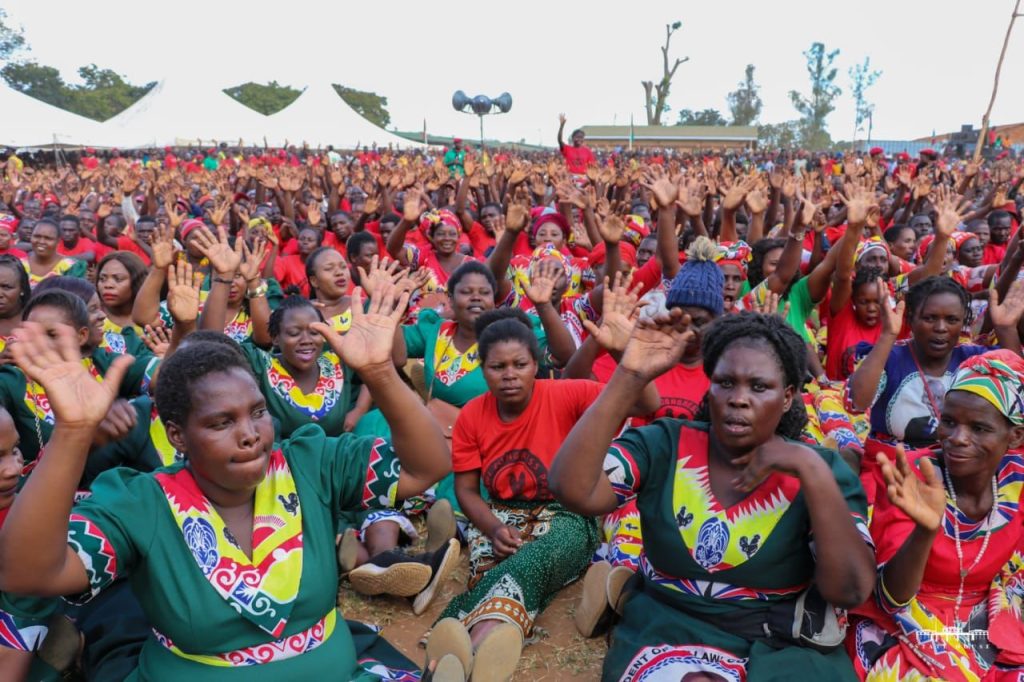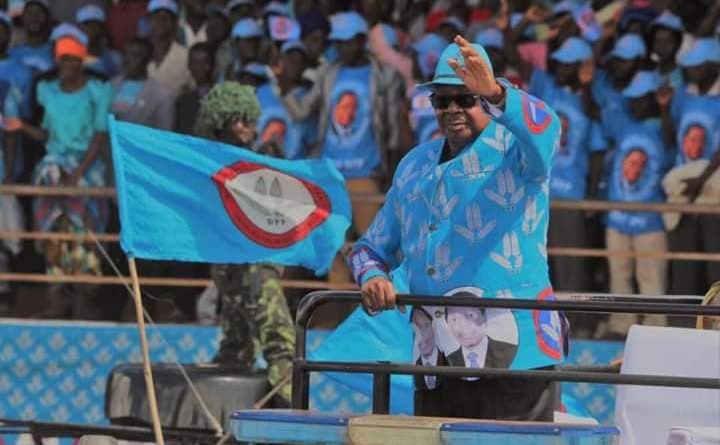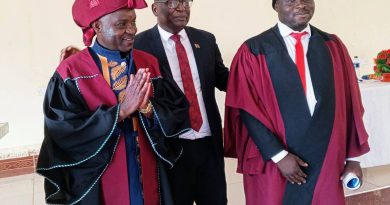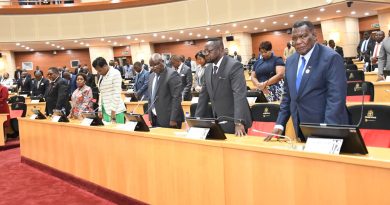What is the future of democracy in Africa and Malawi?
By Titani Chalira*
Democracy is defined as “the government of the people by the people and for the people.” It simply means that people form government by choosing their leaders. The leaders work based on the trust given to them as trustees (representatives). The interests of the people are paramount and they are what the leaders are required to realize.
Democracy has two strands which are procedural and substantive. Procedural democracy on the one hand refers to the processes that are participatory in nature. Some clear examples are elections and establishment of institutions that carry out oversight functions or check the excesses of other institutions and or leaders in a democratic polity. Substantive democracy on the other hand refers to the rights that bring forth the betterment of material conditions of existence for the people. These include; food, shelter, health care and education among others.
Many African countries are at a crossroads asking themselves if democracy has a future in Africa. However, notwithstanding the general sentiment it must be asserted that democracy has a future because of its importance. What is needed is to re-enchant it.
The future of democracy in Africa is based on the important role that it has had historically. In pre-colonial African societies, chiefs were the key representatives for their communities. The chiefs worked with councils of elders and governed by consensus. It was allowed for people to own property and they also had all the other substantive rights that allowed them to assert their individuality.
Although the chiefs were born into royalty there were ways of vetting their suitability to lead. This indicates that Africans were democratic. It is not surprising that they will always make sure they defend and reclaim it in different instances. For instance, African countries reclaimed democracy through independence after colonialism had dehumanized them and discarded the democratic systems that were there.
After gaining independence many African countries ironically adopted the repressive tools that the colonial masters had used to control them. Dictatorial regimes flourished in the continent and they used the liberation badges of honour as the justification for their excesses. In the process, people could not enjoy their rights. The leaders had turned their respective countries into personal fiefdoms. Although this was the case, the people still sought to retain to a democratic set up.
The dehumanizing conditions perpetrated by dictators led to another wave of struggles to become democracies. The early 1990s saw the emergence of multiparty democracy with constitutions hinged on a bill of rights. For many people this marked a season where they were to return to a status quo of being able to own property, access basic social services, be able to choose leaders who would represent their interests, have their rights protected from abuse and generally flourish.
Many African countries are able to conduct elections to change leadership. However, the quality of elections and leaders chosen in many cases have been a disappointment. In countries such as Mozambique, Zimbabwe, South Africa, Tanzania, Angola and Namibia, the liberation movements’ political parties have been retained power consistently.
With the exception of Tanzania, the rest have been consistently re-elected without delivering what is expected of them. It is understood that these liberation movements have a hold on institutions that matter including their respective electoral bodies. This makes their procedural democracy problematic. There is also discontent that has led to violence in some of the countries. In West Africa, the discontent with procedural democracy has led to a number of military take overs. Some people are compelled to conclude that there is no future for democracy in Africa because of these experiences.
In Malawi, elections have in many cases ended up with disputes. The current government came as a result of elections that had been annulled because of irregularities. This speaks to both the weaknesses and strengths of procedural democracy. The other worrying this is that people have been choosing leaders based on tribe. What are known as strongholds for the respective major political parties is the tribe. There is a seemingly silent or unwritten pact that minority tribes will have it tough if not next to impossible to produce a leader.
This is irrespective of the competence of the people from the minority tribes. In addition, the people who fund political parties have also had a huge role when it comes to influencing how elections pan out. The need for accountability is also greatly compromised because many subjects who rise to institutions that are expected to bring checks and balances are either tribesmen or those chosen by party benefactors and benefactresses. This demonstrates how ineffective procedural democracy has been to a certain extent.
The material conditions of existence for the people have not improved for the better in many African countries despite embracing multiparty democracy. People are still lacking shelter, the health care systems are in the doldrums, the quality of education and accessibility is poor. For instance, in Malawi there is acute shortage of food and hospitals are in dire need of drugs.
There is rising inflation and staggering levels of unemployment. There are infrastructural developments taking place which are a positive thing. However, there is need to complement such developments with better material conditions for existence. The highlighted challenges demonstrate the extent of failure to realise substantive democracy which has made people to lose hope and think democracy has no future.

MCP supporters at a political rally
As stated earlier, democracy has a future in Africa because it is important and what is required is to re-enchant it. As an indication of democracy’s importance, Africans have been discussing what has been happening in different parts of the continent. The military take overs in West Africa and the elections that have taken place in Mozambique and Botswana have been some of the topics. These discussions show that people understand that democracy is important. They appreciate the need of changing leadership through elections and the independence of accountability institutions. They also understand that countries must have unity to thrive under a democracy.
The challenge how democracy can be re-enchanted. Democracy can be re-enchanted by a well-informed populace, a unified polity and a morally upright society. People must be well informed about what is expected of their leaders, they must know what a properly functioning democracy looks like and how it works. With this information, they cannot be hoodwinked to vote for incompetent people. They will be vigilant to ensure that procedural democracy is a lived reality. Elections that keep retaining bad leaders will be dealt with and accountability institutions will be taken to task. In addition, they will be ready to hold their leaders to account.
Democracy can also be re-enchanted by a unified polity. The African situation is unique in the sense that it has many ethnicities/tribes and because of this, many countries are not unified polities. The procedural democratic element of elections is marred by the divisive voting patterns which are along tribal lines as a result of the varying ethnicities/tribes. Very few African countries have a supra-ethnic/tribal feeling that everyone can identify with.
Many countries are collectives of tribes in shared territories. People can tolerate bad governance so long as it is one of their own at the helm. The people appointed to hold offices in government agencies are those whose first qualification is tribe and not competence. They eventually fail to deliver and the material conditions of existence for the people keep on worsening. There is need for countries to move away from tribes and or ethnicities. They must build nations and get united under ideas that surpass the tribe or ethnicity. It is through unity that they will start valuing people because of their competence and not identity.
The laws and systems of governance are as good as the people in charge of them. It means that leaders must have some level of morality. This can be achieved by espousing the values of honesty, impartiality, be accountability and transparency. They must be there to act for the common good of those who entrusted them with the responsibility of leadership.
There is a future for democracy in Malawi and Africa provided that elections are not treated as sham exercises but meaningful in the way they produce leaders. Institutions of governance must be allowed to work independently and the office bearers must be chosen on the basis of competence not their tribal identity. They should be vigilant and never let their leaders to trample on their rights. It should be treated as a serious matter whenever the basic social services are not available.
There is need to move away from tribalism and get more unified around a supra-ethnic/tribal identity. The future of democracy is a thing that cannot be wished away. People in Africa will always need to take part in the affairs of their respective countries. This will mean choosing better leaders as their representatives and having functioning accountability institutions to make sure the leaders are not abusing the trust and power given to them.
*Chalira is a regular contributor to The Lamp magazine.




